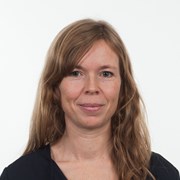There are great challenges when it comes to meeting the need for food, feed and fuel, globally. Aquaculture is seen as the most promising solution to satisfy the globally growing demand for food. However, there is an urgent need for increased volumes of sustainable feed ingredients outside the human food supply chain.
The ocean hosts many species, especially in lower trophic levels that are either not harvested or only marginally utilised. One of this species, Calanus (Calanus finmarchicus), has potential to contribute with new and large volumes of marine raw materials enabling sustainable growth of the Norwegian aquaculture production. Only recently a commercial quota on C. finmarchicus has been set, opening possibilities to harvest and utilize this nearly untapped resource, with an estimated new biomass production of 290 million tonnes per year in the Norwegian Sea alone.
However, several challenges remain to be solved before we have unlocked the full potential of this species. In order to better utilise this resource, new technology and know-how is needed to make harvesting and processing more effective, and research and documentation of the resulting products is necessary to make them commercially desirable. C. finmarchicus has a beneficial chemical composition for use in salmon feed: the lipid fraction is astaxanthin rich and with high n-3 PUFA content, the proteins have well balanced amino acids composition, and free amino acids are known to induce strong feeding responses. The project will develop handling and processing technologies for production of nutritional feed ingredients and evaluate their effect in feeding trials.
Fish feed is the single factor that contributes most to the carbon footprint of salmon production. In CalaFeed, the environmental footprint of produced ingredients will be evaluated and compared with traditional feed ingredients. The project will increase knowledge on the potential of commercial production of feed ingredients from Calanus and evaluate environmental, economic and social sustainability.

CalaFeed is being coordinated by SINTEF Ocean, together with research partners Nofima, NTNU, and CSIC (Spain), as well as the industry partners Calanus AS and Skretting. The project is financed by the Norwegian Research Council (KSP : NFR 320536).

